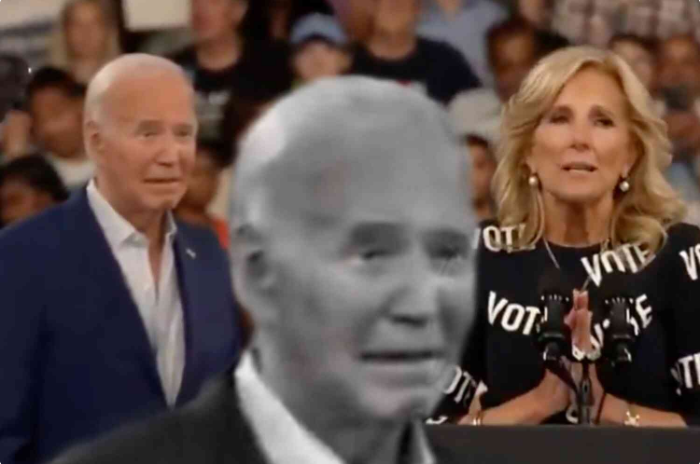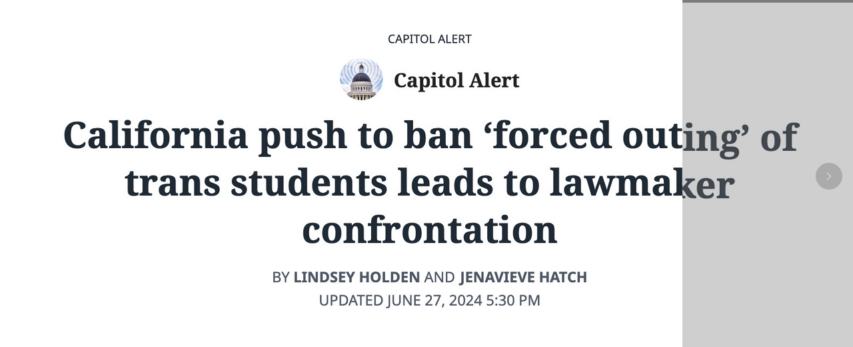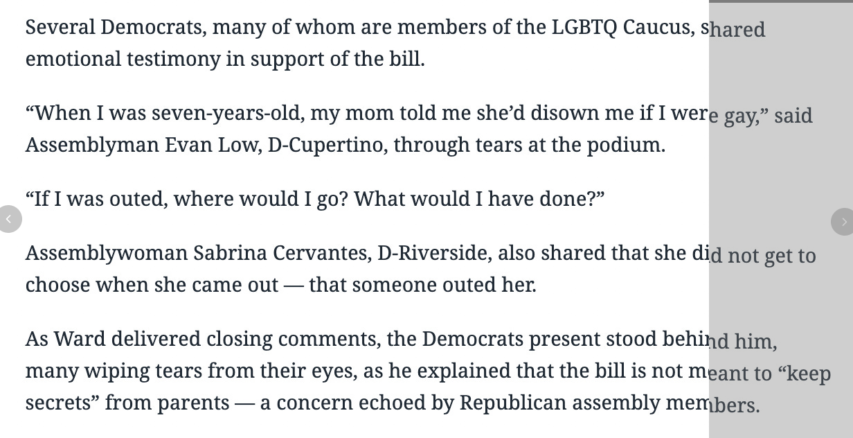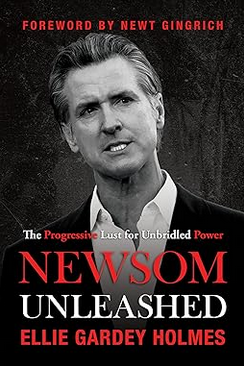Memorial Day in America – or, if you’re a real old-timer, Decoration Day, a day for decorating the graves of the Civil War dead. The songs many of those soldiers marched to are still known today – “The Yellow Rose Of Texas”, “When Johnny Comes Marching Home”, “Dixie”. But this one belongs in a category all its own:
Mine eyes have seen the glory of the coming of the Lord
He is trampling out the vintage where the grapes of wrath are stored…In 1861, the United States had nothing that was recognized as a national anthem, and, given that they were now at war, it was thought they ought to find one – a song “that would inspire Americans to patriotism and military ardor”. A 13-member committee was appointed and on May 17th they invited submissions of appropriate anthems, the eventual winner to receive $500, or medal of equal value. By the end of July, they had a thousand submissions, including some from Europe, but nothing with what they felt was real feeling. It’s hard to write a patriotic song to order.
At the time, Dr Samuel Howe was working with the Sanitary Commission of the Department of War, and one fall day he and Mrs Howe were taken to a camp a few miles from Washington for a review of General McClellan’s Army of the Potomac. That day, for the first time in her life, Julia Ward Howe heard soldiers singing:
John Brown’s body lies a-mould’ring in the grave
John Brown’s body lies a-mould’ring in the grave…Ah, yes. The famous song about the famous abolitionist hanged in 1859 in Charlestown, Virginia before a crowd including Robert E. Lee, Stonewall Jackson and John Wilkes Booth.
Well, no, not exactly. “By a strange quirk of history,” wrote Irwin Silber, the great musicologist of Civil War folk songs, “‘John Brown’s Body’ was not composed originally about the fiery Abolitionist at all. The namesake for the song, it turns out, was Sergeant John Brown, a Scotsman, a member of the Second Battalion, Boston Light Infantry Volunteer Militia.” This group enlisted with the Twelfth Massachusetts Regiment and formed a glee club at Fort Warren in Boston. Brown was second tenor, and the subject of a lot of good-natured joshing, including a song about him mould’ring in his grave, which at that time had just one verse, plus chorus:
Glory, glory, hallelujah
Glory, glory, hallelujah…They called it “The John Brown Song”. On July 18th 1861, at a regimental march past the Old State House in Boston, the boys sang the song and the crowd assumed, reasonably enough, that it was inspired by the life of John Brown the Kansas abolitionist, not John Brown the Scots tenor. Over the years in the “SteynOnline Song of the Week”, we’ve discussed lyrics featuring real people. But, as far as I know, this is the only song about a real person in which posterity has mistaken it for a song about a completely different person: “John Brown’s Body” is about some other fellow’s body, not John Brown the somebody but John Brown the comparative nobody. Later on, various other verses were written about the famous John Brown and the original John Brown found his comrades’ musical tribute to him gradually annexed by the other guy.
Mark Steyn, “The Battle Hymn of the Republic”, Steyn Online, 2019-05-26.
July 4, 2024
QotD: “The Battle Hymn of the Republic”
July 3, 2024
The Korean War Week 002 – The Fall of Seoul – July 2, 1950
The Korean War by Indy Neidell
Published 2 Jul 2024The North Korean forces are advancing all over, and this week they take Seoul, the South’s capital city, after just a few days of the war. There is another tragedy for the South when the Han River Bridge is blown while thousands of people are crossing it, resulting in hundreds of civilian deaths. The world responds to the invasion — condemning it everywhere, and the Americans decide to send in ground forces to help the South.
(more…)
The profound, utter, inescapable uselessness of the legacy media
As an early and enthusiastic blog reader and eventually a blog creator, I’ve always sought interesting aspects of stories in the news — even when I disagreed with the source or the presentation, it’s always a good thing to approach any topic “in the round” whenever possible. Getting all your information from one viewpoint or even one source is a good way to gaslight yourself. Once upon a time, while the TV networks tended to be as bland as they could (because going too far toward sensationalism would be a good way to get in bad with the regulators who control your broadcasting privileges), newspapers were not under such strong moderation. You could find very progressive, mildly progressive, centrist, and even mildly conservative voices with relative ease. At least, that’s what a rosy view of media history suggests — I think you have to go back before World War II to find really vigorous debates among the major newspapers.
Here in Canada, the mass media were already overly deferential to the government of the day — unless it was a Conservative government, of course — and after the internet and social media ate all the profit out of their business, they turned as one to the government to bail them out. In return, they became even more deferential to official story lines unless the foreign press forced their collective hand to present a more complete story. Over the last few years, as the surviving mainstream media shed jobs, many journalists have “crossed the lines” and become much more like their distant predecessors in the media: diggers of dirt, tellers of uncomfortable truths, and impartial mockers of government incompetence (Canada’s The Line is an excellent example of this … even when I don’t link to them, I almost always find their articles interesting and informative.)
All that throat-clearing out of the way, here’s Chris Bray asking what you have learned from the mainstream media lately:
When was the last time you read something in the mainstream news media — an op-ed piece, a major revelation that some clever and persistent investigative reporter dug up, a sharp bit of news analysis — that surprised you? When was the last time you read something in the news that changed your understanding of a major issue? When was the last time something in the “news” reframed an issue in your head with an argument you hadn’t anticipated, or with new evidence that you hadn’t heard before? “Man, I’d never thought of it that way,” you say, tossing the New York Times down on the coffee table.
Related, when was the last time a report or a panel discussion on television news surprised you and made you see something differently?
My impression is that the public sphere is now made up almost entirely of people saying things that we already know they’re going to say. “Jennifer Rubin will now analyze the presidential debate.” You don’t need to hear that. There’s no need to listen to any of it, ever. Andrea Mitchell is for [current thing]. Of course she is. If you know what [current thing] is, what’s the point of an Andrea Mitchell?
It’s all so dull.
There are at least a couple hundred prominent media and academic figures in the United States who could die tonight without anyone noticing, as long as there was a tape or a computer program of some kind to go on posting the received wisdom of the day under their names.
July 2, 2024
The Chevron decision
On his substack, Glenn “Instapundit” Reynolds discusses the recent US Supreme Court decision on “Chevron deference” and how it is going to impact the administrative state (and their business victims) going forward:
Goodbye, Chevron deference. Larry Tribe is already mourning the Supreme Court’s overturning of NRDC v. Chevron, in the Loper Bright and Relentless cases, as a national catastrophe:
Oh, the humanity!
Well, speaking as a professor of Administrative Law, I think I’ll bear up just fine. I’ve spent the last several years telling my students that Chevron was likely to be reversed soon, and I’m capable of revising my syllabus without too much trauma. It’s on a word processor, you know. As for those academics who have built their careers around the intricacies of Chevron deference, well, now they’ll be able to write about what comes next. And if they’re not up to that task, then it was a bad idea to build a career around a single Supreme Court doctrine.
And that wasn’t the only important Supreme Court decision targeting the administrative state, a situation that has pundit Norm Ornstein, predictable voice of the ruling class’s least thoughtful and most reflexive cohort, making Larry Tribe sound calm.
Sure, Norm, whatever you say.
But how about let’s look at what the Court actually did in Chevron, and in the Loper Bright and Relentless cases that overturned it, and in SEC v Jarkesy, where the Court held that agencies can’t replace trial by jury with their own administrative procedures, and in Garland. v. Cargill, where the Court held that agencies can’t rewrite statutes via their own regulations. I don’t think you’ll find the sort of Russian style power grab that Ornstein describes, but rather a return to constitutional government of the sort that he ought to favor.
At root, Chevron v. Natural Resources Defense Council is about deference. Deference is a partial abdication of decisionmaking in favor of someone else. So, for example, when we go out to dinner, I often order what my son-in-law orders, even if something else on the menu sounds appealing. I’ve learned that somehow he always seems to pick the best thing.
Deference doesn’t mean “I’ve heard your argument and I’m persuaded by it”, (though something like that is misleadingly called “Skidmore deference”, but isn’t actually deference at all). Deference means “even if I would have decided this question differently, I’m going to go with your judgment instead”.
Under Chevron deference, when an agency interprets a statute it administers (e.g., the EPA and the Clean Air Act), a court will uphold its interpretation so long as it is (generously assessed) a reasonable one, even if it is not the interpretation the court would have come up with on its own. As you might imagine, this, at least potentially, gives agencies a lot more leeway, particularly when, as is often the case, Congress has drafted the statute ambiguously.
With Chevron overturned, courts will now apply their own judgment instead of deferring to agencies. Of course, this isn’t as big a deal as Larry and Norm seem to think, because Chevron has been dying the death of a thousand cuts for a while. Under the “major questions doctrine”, courts already decline to defer to agency interpretations where the issue has major social or economic ramifications.
QotD: The ’60s
I am ashamed of how my generation acted in the 1960s, and the only reason that I am not more angry at myself and my friends is because we were so very young. I’m still puzzling over why we lost our moorings. I’d say it was money. We acted that way because we could afford to. It was the first time in the history of the world that anything like this size of a generation had been anything like that rich, and it was a shock to everybody’s system. There’s nothing we did that Lord Byron wouldn’t have done if he’d had a good stereo.
You have this convergence: an extremely unpopular and possibly unwise war, and birth control. The sudden idea that nothing had any consequences. There’s that Philip Larkin poem — sexual intercourse was invented in 1963. And the drugs went everywhere in a year.
P.J. O’Rourke, interviewed by Scott Walter, “The 60’s Return”, American Enterprise, May/June 1997.
July 1, 2024
QotD: Why there’s no “first lady” equivalent in Canada
It’s true that I became irascible when I read a sister newspaper’s headline calling Nazanin MacKay “Canada’s potential first lady.” I mean no disrespect to Mrs. MacKay here. For all I know it is a serious flaw in our democracy that we are speaking of her, and not her husband, as a potential prime-ministerial spouse. It’s this “first lady” business I dislike. This is an un-Canadian invasive species that careless editors try to apply to the wives of PMs at rare but increasing intervals.
But I didn’t get earnestly annoyed until I heard an intelligent acquaintance object to the usage … while admitting that it was a “pedantic” point. Listen, I’ve made as much money out of professional pedantry as any Canadian. This isn’t pedantry. This is about the underwater nine-tenths of our constitutional iceberg. This is about what Confucius called the rectification of names.
So I ask you: what Canadian, in 2020, is still eyeing the paraphernalia of the American presidency with envy? The pedantic point to be made, although it is also a point of etiquette, is that a prime minister’s wife cannot possibly be the “first lady” of a realm currently equipped with a Queen. Not to mention a vicereine who can hire and fire prime ministers.
A “first lady” is a convenience that republics, for social and diplomatic purposes, have instead of reigning queens or consorts. The senior female member of the presidential household is recognized as First Lady of the republic when the president is widowed or single (like Buchanan, whose niece held the title).
The word “princess” is almost literally just the Latin for “first”, and some Americans must have sensed they were tempting fate when they united their social hierarchy with their political one under a title savouring of hospice-stage republicanism. The original vision was of a country that did not have princesses or anything like.
Colby Cosh, “Talk of a Canadian ‘first lady’ is a small step toward American dysfunction”, National Post, 2020-05-26.
June 30, 2024
California’s politics are so weird that Justin Trudeau is frantically taking notes
Chris Bray pays attention to California politics … and we should all pray for his long term mental health: that place is insane!
What’s happening in California isn’t politics in any conventional sense. No debate is underway, and no policy choices are being hashed out. We’re in the land beyond. In Our Democracy™, declarations are made, and then they are to be received in a spirit of quiet submission. Your failure to submit is disallowed, and the reason it’s been disallowed is that it’s been disallowed. Were it allowed, it would not be disallowed, but it is, in fact, disallowed, so therefore it is not allowed, you see? All “political” discussion is a circle, eating its own tail. I’ve been trying to figure out how to explain this, but the Sacramento Bee just did it for me. (Paywall-evading version here.)
The Bee is explaining — or “explaining” — what happened on the floor of the state Assembly yesterday, when a Republican was not permitted to argue against a bill, and a Democrat stood up to threaten him for trying. I encourage you to read the whole self-refuting thing. What happened, it turns out, is that the Republican was preventing debate by engaging in debate, which meant that he had to be silenced and threatened so debate could continue, which required that no one express opposing views, which is an act of anti-debate aggression. Debate is agreement, and not agreeing is preventing debate.
The “forced outing” debate was a discussion about AB 1955, which proposes to forbid schools to inform parents of discussions between children and school officials about sexual orientation and sexual behavior. It’s important that parents not be told about sexually themed discussions happening between children and the adults in their schools, because not telling mommy and daddy about sexual discussions is being safe and warm. But watch the casual turn of logic in the last paragraph of this screenshot:
- Evan Low said the bill is important because it’s good that parents not be told, and the bill makes sure parents aren’t told.
- Sabrina Cervantes said she didn’t have this bill when she was young, which would have forbidden telling, so someone told.
- Democrats explained that the bill is not meant to keep secrets from parents.
See, AB 1955 isn’t about keeping secrets from parents — it’s about not allowing schools to tell parents. Not being allowed to tell parents is different than keeping secrets from parents. The story doesn’t go on to explain the distinction between keeping secrets and not telling, but under Jacobin cultural rules, the distinction is that shut up. The distinction is presumptive, and so doesn’t require explanation.
Now, here’s the way the Bee characterizes Assemblyman Bill Essayli’s arguments during the debate that he derailed by not agreeing:
Essayli has exhibited a consistent pattern of publicly disparaging advocacy groups and fellow lawmakers in an attempt to garner attention for conservative causes. On Thursday, he interrupted colleagues’ testimony and expressed frustration over Wood cutting his microphone and shutting down his comments when they veered away from AB 1955 and toward the issue of forced outing, in general.
His comments about the forced outing bill weren’t about the bill — they were about forced outing. What a bastard! Mister Speaker, he’s not debating the highway funding bill, he’s debating highway funding. Again, why does this distinction make sense? Because shut up. It makes sense declaratively: X is true because they said X.
And Essayli has a “consistent pattern” of saying disparaging things, which the Bee knows through mindreading is a maneuver to “garner attention” rather than an attempt to express his views. He disagreed, which is a very cynical and manipulative thing to do during a debate. He has a pattern of it!
And also Essayli is so rude that he interrupted colleagues when they spoke, and then had the nerve to object when his microphone was turned off. It’s rude to stop someone from speaking, and it’s rude to object to being stopped from speaking. You should never interrupt people, and you should always allow other people to interrupt you. They’re playing partisan Calvinball under the dome, and all moves lose.
Operation Olympic – 100,000 US casualties in 60 days? – WW2 – Week 305 – June 29, 1945
World War Two
Published 29 Jun 2024The casualty projections for the planned November invasion of Kyushu, Japan are in … or are they? They might have been “massaged” a little to sell the operation more easily. The fight in the field still goes on, though, with parachutes flying over Luzon as more American troops land, and an Australian advance on Borneo.
(more…)
June 29, 2024
“No sane person can possibly believe that this man is capable of being president now, let alone for another four years”
Joe Biden’s performance in the first Presidential debate on Thursday night was so bad that even his strongest supporters in the media have turned on a dime and are now contemplating his replacement:
This is not a hard column to write. In fact, I wrote it twice already! But last night’s debate performance by Joe Biden is the end of his campaign. It’s over. Done. No sane person can possibly believe that this man is capable of being president now, let alone for another four years. No sane person can vote for him.
And watching him barely capable of finishing a sentence, staring vacantly into the middle distance, unable to deliver a single coherent message even when handed an ideal question, incapable of any serious rebuttals to Trump’s increasingly deranged lies … well, the first thing I felt was intense sadness. This was elder abuse — inflicted, in part, by his wife.
The second thing I felt was rage. His own people chose to do this. That alone reveals a campaign so divorced from reality, so devoid of a rationale or a message, so strategically incompetent, it too has no chance of winning. It is an insult to all of us that a mature political party would offer someone in this physical and mental state as president for the next four years. And it has always been an insult. That the Democrats would offer him as the only alternative to what they regard as the end of liberal democracy under Trump is proof that they are either lying about what they claim are the stakes or are utterly delusional. If Trump is that dangerous, why on earth are you putting forward a man clearly in the early stages of dementia against him? Have you decided to let Trump win by default because you’re too scared to tell an elderly man the truth?
And if they have not told him the truth on this, what else are they afraid to tell him?
The mainstream media also bears responsibility for once again being an arm of the DNC establishment, running countless stories about Biden’s acuity and sharpness from inside sources, while attacking the few journalists who actually dared write the most obvious truth about this election: Biden has deteriorated rapidly in the last four years, he is unrecognizable from the man who ran in 2020, and we’ll be lucky if he is able to function as president for the next six months, let alone four years.
I watched MSNBC after the debate. It was like watching State TV in Russia. It took them an hour to acknowledge what the world had just seen, as they danced pathetically around what was staring them in the face. They are literally administration spokespeople — Jen Psaki has the exact same job she always had — waiting for instructions on what to say out loud. And they have all lied through their teeth for months about Biden’s fitness, only to refuse any accountability. Joe Scarborough recently declared on his show:
Start the tape right now because I’m about to tell you the truth: and F— you if you cannot handle the truth. This version of Biden — intellectually, analytically — is the best Biden ever.
To which the only response is: No, F— you, Mr Scarborough. And fuck all the lies you have told.
But there is a huge, gleaming, hopeful silver lining, as I’ve noted many times before. For the first time this year, we have a chance of keeping Trump out of the Oval Office with a new nominee from a younger generation. No, I don’t know who — except it obviously cannot be Kamala Harris, who would lose by an even bigger margin than the ambling cadaver. But that is what politics is for! There is time for a campaign before a convention that could now be must-see television. A future campaign already has a simple message that vibes with the moment and instantly puts Trump on defense: it’s time for the next generation to lead. We are choosing between the past (Trump) and the future, between the old and the young, between the insane versus the coherent.
All it takes is a credible Democrat of stature to say they are running against Biden. Then all the bets are off. He or she need not criticize Biden, and, in fact, should lionize his service. But they can say they’re running because beating Trump is the first and most important objective, and, at this point, it is obvious that Biden simply cannot beat Trump.
Does anyone have that courage? The person who shows it will instantly become the front-runner. Go for it.
In The Free Press, Bari Weiss points the finger at all of the American media and the apparatchiks of the Biden administration who have been loudly and consistently proclaiming that Biden was in great mental shape, running rings around his advisors, and fit, rested and ready to debate Trump:

Image from Not The Bee – https://notthebee.com/article/jill-is-out-stumping-with-president-biden-and-he-somehow-looks-even-worse-today/
Rarely are so many lies dispelled in a single moment. Rarely are so many people exposed as liars and sycophants. Last night’s debate was a watershed on both counts.
The debate was not just a catastrophe for President Biden. And boy—oy—was it ever.
But it was more than that. It was a catastrophe for an entire class of experts, journalists, and pundits, who have, since 2020, insisted that Biden was sharp as a tack, on top of his game, basically doing handstands while peppering his staff with tough questions about care for migrant children and aid to Ukraine.
Anyone who committed the sin of using their own eyes on the 46th president was accused, variously, of being Trumpers; MAGA cult members who don’t want American democracy to survive; ageists; or just dummies easily duped by “disinformation”, “misinformation”, “fake news”, and, most recently, “cheapfakes”.
Cast your mind back to February, when Robert Hur, the special counsel appointed by the Department of Justice to look into Biden’s handling of classified documents, came out with his report that included details about Biden’s health, which explained why he would not prosecute the president.
“We have also considered that, at trial, Mr. Biden would likely present himself to a jury, as he did during our interview of him, as a sympathetic, well-meaning, elderly man with a poor memory,” Hur wrote. “It would be difficult to convince a jury that they should convict him — by then a former president well into his eighties — of a serious felony that requires a mental state of willfulness.”
Can anyone doubt that characterization after watching Biden’s debate performance?
Yet Eric Holder told us that Hur’s remarks were “gratuitous”. The former attorney general tweeted: “Had this report been subject to a normal DOJ review these remarks would undoubtedly have been excised”. Dan Pfeiffer, a former Obama adviser, said Hur’s report was a “partisan hit job”. Vice President Kamala Harris argued: “The way that the president’s demeanor in that report was characterized could not be more wrong on the facts, and clearly politically motivated, gratuitous”. The report does not “live in reality”, said White House Press Secretary Karine Jean-Pierre, stressing that the president was “sharp” and “on top of things”.
QotD: The kooks and conspiracy theorists have a better track record than CNN
Right wing Americans need their own version of consciousness raising and appreciating the “different ways of knowing” marginalized white Americans and right wingers have.
We’ve been trained by generations of left wing television, schooling, and academia to defer and treat the most noxious and stupid bleatings of uninformed women, non-whites, gays, and religious minorities as sacrosanct pieces of insight we’re supposed to wrestle with … whilst at the same time we’ve been treated to presume any white male over a certain age with unusual mannerisms or a disregard for left wing shibboleths is dangerously low status and deranged, when in reality it is the opposite.
Looking at the past 50-60 years, the Grumpy Granddads, hilly-billy mystics, and aging conspiracy theorists have consistently been more right than the mainstream.
If in 2002 you had to pre-commit to believing everything Alex Jones said, or everything CNN said for the next 20 years … You’d have been a fool to pick CNN. Indeed if you took their diet and medical advice you’d probably be dead.
The Archie Bunkers and Deryl Gribbles have consistently been years ahead of the mainline right for seeing the truths of the regime.
Now obviously like Greek heroes consulting the oracle at Delphi, or spirit questers visiting shamans … you have to assume you won’t understand half of what they say, most of it will fly over your head, and a good chunk probably isn’t even meant for you but the other spirits in the room …
But the signal to noise ratio of our hermits and kooks are thousands of miles beyond whatever left wing diversity chicks are getting from the native grifters they entertain at their campus events or the black “we wuz” consciousness raisers they shovel money at.
The old white shamans have been resisting the government since decades before you were born and they remember the all the little episodes official history likes to forget.
Like a young a adept consulting an old sage or a seeker consulting an old monk do not say “I don’t believe that” instead say “Hmm …” or “I am not yet that far down the path”.
Kulak, “The Myth of the Stupid Right”, Anarchonomicon, 2024-03-28.
June 28, 2024
Japan Decides on Peace – Are They Too Late? – War Against Humanity 137
World War Two
Published 27 Jun 2024The US bombers continue destroying Japanese cities with a rain of firebombs. As the country burns, the Japanese leadership and Emperor Hirohito finally realise they must seek peace.
(more…)
The weird and the W.E.I.R.D. gather at Vibecamp
Kulak, just back from a road trip to visit two pretty far offbeat gatherings, writes about what she heard and saw at Vibecamp:
VibeCamp is maybe the extreme intersection of Rationalist, Post-Rat, Effective Altruism, Silicon Valley, Quant Finance, and 5-10 other Cyber-Left, Grey-Tribe, autistic-centrist, techno-optimist blogging/twitter world. […]
Given that setup you could probably imagine the two overwhelming facts about Vibecamp:
- With rare exception everyone in attendance was shockingly intelligent. At random points throughout the festival I was having deep dive conversation on the geostrategic situation in Israel, the effects of Interest rate increases on venture capital, early 20th century Canadian poetry, and the fate of the petrodollar and the nature of Foreign Exchange markets.
- With rare exception everyone in attendance was incredibly weird. Some in very obvious ways visible at 100 paces, some in little uncanny ways it might take you an hour to isolate and identify.
[…]
The shape of the people jumps out at you. There were an incredible number of normal and average looking people, and a much lower portion of obese and Amerifat body-types than almost anywhere else in the US… Perhaps owing to the extreme intelligence and incomes of those involved … But in about 30-45% of people in attendance there’s just some unusual distortion of body proportions that would be remarkable and memorable encountered in an individual, but when assembled together gave the White and Jewish attendees (a combined 90+% of the total) the look that they were all descended from some unusual gothic ethnicity you couldn’t quite put your finger on. Some strange isolated country bordering The Netherlands, Ireland, Estonia, Romania, and the Basque region of Spain … That they’d all come from whatever part of the old country the Adams Family comes from.
[…]
These unusual heights (or lack there-of) were exaggerated by recurring extremes of bodyfat percentage, with several of the attendees (male, female, and between) having a spider-like absence of body fat entirely denoting some unusual hormonal profile expressed in a true kaleidoscope of personalities and interests.
This was expressed most keenly in the faces in which latent autism, and the aforementioned hormonal oddities, were expressed in large eyes and other unusual features, resting positions, and expression creases. Which weren’t all necessarily unattractive, but gave most of the women (and a good percentage of the men) a rather spaced out looks which remained somehow unique in each instance … As if they were all on another planet, but each a very different one from the one each other was on.
Thankfully with psychedelics and other pharmaceuticals they seemed able to meet up on a few mutually agreeable worlds.
[…]
Vibecamp attracts a great deal of biohackers and supplements freaks. Men, women, and others of extreme nutritional theories … and while some of them look like their theories haven’t panned out (the vegans) some look like they’ve discovered the Holy Grail.
This extreme bifurcation and assemblage of extremes was expressed right down to their vehicles… Walking through the parking lot there were $100,000 CyberTrucks and sportscars, whereas 1-2 cars down the line from them there were vehicles practically ripped apart with the engine showing under bodywork that’d long ago been scattered across some guardrail, reassembled just enough to (somehow) get back on the road but with not a dime spent on restoring it’s appearance. This wasn’t 1 car, this was a TYPE of car at the festival. Denoting in the owners some combination of MacGyver resourcefulness, Chadlike indifference, autistic obliviousness, and Victorian Frugality that I can’t but admire … (Or I suppose, possibly, extreme motor impairment. I don’t know that these accidents didn’t happen ON THE WAY to the festival)
[…]
The broken heterosexual male-nerd anxiety and tentativeness around sex and other forms of human interaction and intimacy could be cut with a knife … And it wasn’t like everyone had all been corralled and lectured night one or anything of the sort, somehow this broken progressive Dysgenic (actively failing to generate) culture had infected the urban male technological elite, from Bay Area techfounders, to New York Medical Experts, to DC Military Industrial Complex people, to British Forex Traders, to Dutch and Australians visiting the US for the first time … All of them had had that instinctive flinch trained into them … Some of the Wealthiest, Oddest, Most intelligent, and a small handful of the most attractive men in the world … had all been broken like horses, to flinch and start moving the minute the riding crop is grabbed.
Heartbreaking.
There’s an irony that the places which most engage in therapy language and most proudly proclaim their “acceptance” are almost always the most unforgiving … My friend continued to crash VibeCamp events after they tried to kick him out, and he might have been one of the only people in VibeCamp history to start dating a girl at the festival … (not a man to receive a priestly censor), but the sensitive nerdy men I encountered, with well meaning hearts and souls for poetry, hopeless.
So while I had a blast and enjoyed myself I certainly don’t expect it to be a culture that’s still there in 20-30 years, The people there will maybe produce 100-200 offspring in that time for every 500 that actually attended. If that.
June 27, 2024
California’s Trudeau
In the New English Review, Bruce Bawer reviews Newsom Unleashed: The Progressive Lust for Unbridled Power by Ellie Gardey Holmes, a biography of California’s own Justin Trudeau:
I’ve been appalled by Gavin Newsom for years, but to read Ellie Gardey Holmes’s powerful and unflinching new book Newsom Unleashed: The Progressive Lust for Unbridled Power is to find one’s contempt for this hideous creature skyrocketing. If he has any redeeming qualities, any special gifts, any attributes that might illuminate an admirable and recognizably human side, there’s no sign of them here. This is a man who, despite having no discernible talent for governance or anything else, was lucky enough to be born into one well-off family – his great-grandfather co-founded the Bank of Italy, which later became the Bank of America – and to be, from earliest childhood, a sort of honorary member of an even richer family, the Gettys, his father being best friends with oil magnate Gordon Getty, who was like a second father to young Gavin.
Both men, his biological father and his second father, used their considerable influence from the beginning to help Gavin rise to power. Indeed, as surely as any Kennedy or Bush, Gavin Newsom was born into a political machine and bred to be a politician. After he and Getty played a big role in helping Willie Brown to get elected mayor of San Francisco, Brown named Newsom to the city’s Parking and Traffic Commission. Soon he was promoted to the Board of Supervisors, a post he held from 1997 to 2004. “Because of his lack of qualifications,” writes Gardey Holmes, “Newsom entered office entirely indebted to Willie Brown”. Observers referred to him, in fact, as “an appendage of Willie Brown”. Quick sidebar in the midst of this tale of political advancement: when his mother was dying, Gavin was pretty much AWOL, although he was present when she underwent assisted suicide – which, at the time, was illegal in California. Others had been prosecuted for their participation in such actions; Gavin was not, a foreshadowing of many other occasions on which he would be treated as exempt from the rules governing the behavior of ordinary mortals.
In 2003 he was elected mayor. One of his first acts was to authorize the issuing of marriage licenses for same-sex couples, even though he had no power to do any such thing. He even performed some of the marriages himself. This cynical move (which even California’s two Democratic Senators, Dianne Feinstein and Barbara Boxer, opposed) was a cheap stunt, carried out at the expense of gullible gays, whose marriages were soon enough ruled invalid by the state Supreme Court – but it had the desired effect. It made him a national figure and it won him the esteem of the mainstream media. Bob Simon told him on 60 Minutes that he might well have “set a record for instant fame in this country”.
From the beginning of his life in “public service” – that laughable term – Newsom’s vanity and ambition were flagrantly palpable. Although the New York Times described him during his mayoralty as the subject of “local adoration”, some San Francisco insiders resented his brazen focus “on self-aggrandizement and personal publicity” and his relative indifference to the city’s growing problems on a variety of fronts. Routinely, he stole credit for other people’s initiatives and acted as if he were exempt from the rules. A police officer drove him to his wedding in Montana in his official SUV – a definite no-no.
After two terms as mayor he had his eye, naturally, on the Governor’s Mansion – but polls convinced him to run for Lieutenant Governor instead. He spent two terms in that job, too, but hated it: he had no real power, no real staff, no real budget, and he felt disrespected by his boss, Jerry Brown. The initiatives he did support were destructive “progressive” bilge of the first water: for example, he was the only statewide elected official to support Proposition 47, which converted many felonies to misdemeanors, helping to set off the still ongoing rash of shoplifting that has made San Francisco, particularly, an international joke. For the most part, however, instead of addressing the state’s problems he put his energies into enhancing his national profile. He became a fixture on shows like Real Time with Bill Maher. He also wrote – or at least signed his name to – a book calling for the transformation of government by means of “digital technology”; the book’s argument didn’t make much sense, and even Stephen Colbert, usually a reliable left-wing shill, dismissed it as “bullshit”.
And then, inevitably, in 2019, Newsom became governor, thanks in no small part to massive donations from the Gettys and Pritzkers and his role as “the darling of the upper class”. California was already on the skids, but Newsom accelerated the process. He pulled National Guard troops from the southern border, saying that “[t]he border ’emergency’ is a manufactured crisis and California will not be part of this political theater”. He even had the state sue President Trump over his border emergency declaration, which according to Newsom was nothing but an expression of “division, xenophobia, [and] racism”. Instead of canceling one of the state’s notorious boondoggles – the program to build a staggeringly expensive high-speed rail line from San Francisco to San Diego – he shortened the planned route, so that the trains would run only between Merced and Bakersfield. This made the rail line an even more ridiculous proposition, but Newsom’s priority was not to provide a useful means of public transportation but to keep the state from having to return the federal money appropriated for the project to a government run by Donald Trump, who from the beginning of his governorship Newsom singled out as his personal enemy – an action that profoundly enhanced his popularity among California Democrats. Indeed, instead of seriously dealing with California’s jobs and education crises, Newsom focused relentlessly on attacking Trump. A hundred days into his governorship, he bragged childishly that California was “the most un-Trump state”.











